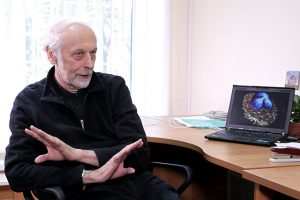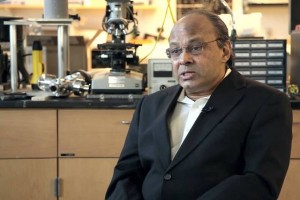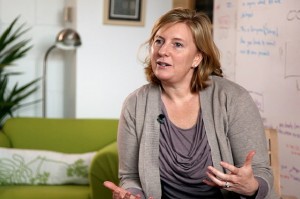Membrane Proteins
Biophysicist Georg Büldt on X-ray crystallography, structure of proteins, and free electron laser
What is synthetic biology? What links does it have to therapeutics? How can it help in fighting diseases such as cholera? Boston University Professor of Biomedical Engineering, James Collins, talks on the past and the future of synthetic biology.
We’re engineering Lactobacillaceae to respond to cholera infections. So here we’ve engineered them so they would respond to two different signals from cholera and in a matter of response produce antimicrobial peptides specific to cholera. And the beauty of this is that cholera drugs are very expensive and highly-toxic. Now, in principle, we’re just starting work in vitro on this, you could spike this into somebody’s yogurt and in the face of a cholera outbreak, for example, in Haiti just after the earthquake or put it in a pill, and now this is so much cheaper than developing the drug itself and much less toxic.
You can imagine now that you’ve got a circuit, that could endow a cell with memory and this actually helped to inspire a number of people on the computing side, when they realized that now you could maybe program a cell just as you could (that’ll be a simplification) a circuit. And whilst there was a lot of interest about computing, to think of it as replacing electronic circuits inside a PC is probably not the right way to think about it. But thinking about programming these cells to create, for example, now programmable cells do a range of functions, is in fact the right way to think about it.
I think, we’ll see in the coming decade or two major advances in synthetic biology, that impact our lives, whether it’s on energy, food, proteins, which puts health along the line, or even help our environment, when you could see these coming up to clear up different problems at different sites. I think some of the most intriguing scientific questions are really trying to understand, how the natural networks are wired up and how they function. And why I bring that up is that we have much to learn from these organisms that have evolved over these millions, these billions of years to create these circuits and networks, that do pretty complicated functions and sometimes under very hostile environments

Biophysicist Georg Büldt on X-ray crystallography, structure of proteins, and free electron laser

Prof. Srinivas Sridhar of Northeastern University on early detection of cancer, drug targeting by nanoparticle...

Prof. Hopi Hoekstra of Harvard University on beneficial mutations, wild mice as a model system, and patterns o...